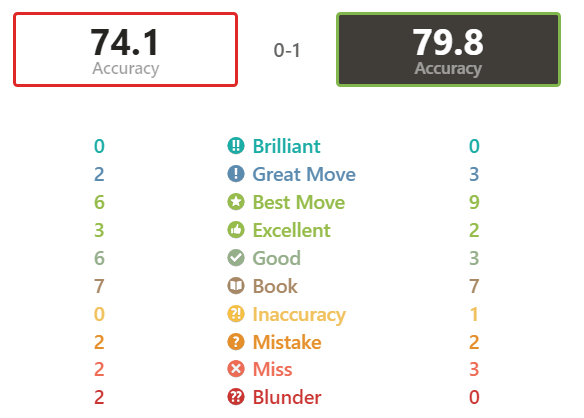Welcome to Say Chess! This newsletter goes out to 3,979 chess players. If you haven't joined yet, sign up now and get the ebook '100 Headachingly Hard Mate In Two Puzzles Composed By Sam Loyd' for free.
The other day I passed an interesting study on X (Twitter). It was an Israeli study on After-Event Reviews (AER) of soldiers’ navigation exercises.
I thought, hey, that resembles reviewing your games in chess. The study was performed by Shmuel Ellis and Inbar Davidi from Tel Aviv University. They challenge the conventional wisdom that learning from your mistakes is the essential way to improve. In chess, we often hear the mantra sounding something like “A lost game is a unique chance to learn, while a win is great because it is a win.” But is it true?
The study explores the concept of After-Event Reviews (AERs), a systematic approach to learning that involves analyzing both successes and failures. The premise is simple but powerful: while failures provide valuable lessons, so do successes, and ignoring them could mean missing out on key opportunities for growth.
The Study and Its Findings
The researchers conducted an experiment involving soldiers doing successive navigation exercises. These soldiers were divided into two groups. One group reviewed only their failed events, while the other reviewed both their failures and successes. The study found that the performance of soldiers who reviewed both types of events improved significantly compared to those who focused only on failures.
Initially, both groups had more detailed mental models for their failures—meaning they had a deeper understanding of why they failed than why they succeeded.
By working on reviewing the successes the one group managed to close this gap. This balanced view likely contributed to their faster improvement, as they could learn not just from what to avoid, but also from what to continue doing.
I think that it is something worth remembering in regard to chess learning.
Chess Analysis and Annotation
Chess players, particularly those playing in tournaments, are no strangers to post-game analysis. The common practice is to run the game through a chess engine, focusing on blunders, inaccuracies, and missed opportunities.
On Lichess you are presented with inaccuracies, mistakes, blunders, and average centipawn loss. All failures to play the objectively best engine move. Chess.com actually has a more balanced presentation also including good, great, and brilliant moves.
The study's findings suggest that a one-sided approach of focusing only on mistakes might be limiting your growth as a player.
Imagine you just played a game where your opening play was perfect, leading to a strong middlegame that you later slightly misplayed in a muddy endgame. If you only focus on the mistakes you made in the endgame, you're missing out on the opportunity to reinforce the positive moves that led to your strong position in the first place.
By implementing the learnings from the study, you can start to balance this out. One thing worth trying is instead of just asking, "Where did I go wrong?" also ask, "What did I do right?" Analyze the successful strategies/moves you employed, the tactics you saw that your opponent missed, or the endgame techniques that you executed well.
At least, this is how I would interpret how the findings could be applied to chess training.
It would be interesting to set up a study similar to the Israeli study but for chess players. One group would only focus on learning from their mistakes, while the second group would spend equal amounts of time studying their mistakes and their good moves. Then see which group had improved the most after x-time.
While analyzing mistakes will always be crucial, maybe it's time we pivot toward learning from our successes too. Focusing more on successes might also make you enjoy your hobby more, while a heavy focus on mistakes could lead to a lack of self-belief.
I hope you found this newsletter interesting, and if you want to support the newsletter I have a special offer for you this week:
I will send out the part II of the best books for chess improvement survey a little later this week.
Have a great week,
Martin







Wonderful article.
A simple thing but hardly popped up before. From childhood we're most likely programmed to lookup on the mistakes first than what we are good at. Similarly we take Chess wins granted. The Chess losses are hard and we want to fix *those* mistakes but we can't - creating spiral bind.
A holistic approach with focusing from all angles regardless of result - perhaps best method to review games [and many other things in life and career!].
I can feel that I am experimenting this in - Chess game review [it's long due!], Journaling [occasional one] and Work [Sprint cycles - especially retrospectives - already being done sometimes] -- from now.
Thank you
Focusing only on your mistakes can be pretty demoralising. I'd convinced myself to focus only on my mistakes because blundering your queen is significant enough to warrant that kind of focus, however noticing a good queen move would be just as important!
I haven't looked at the study yet, however it would have been good to have a group learn only from their successes to see how they compare, and any good scientist should also have a control group, to see how they soldiers, or chess players, would improve at the task simply from doing it again.